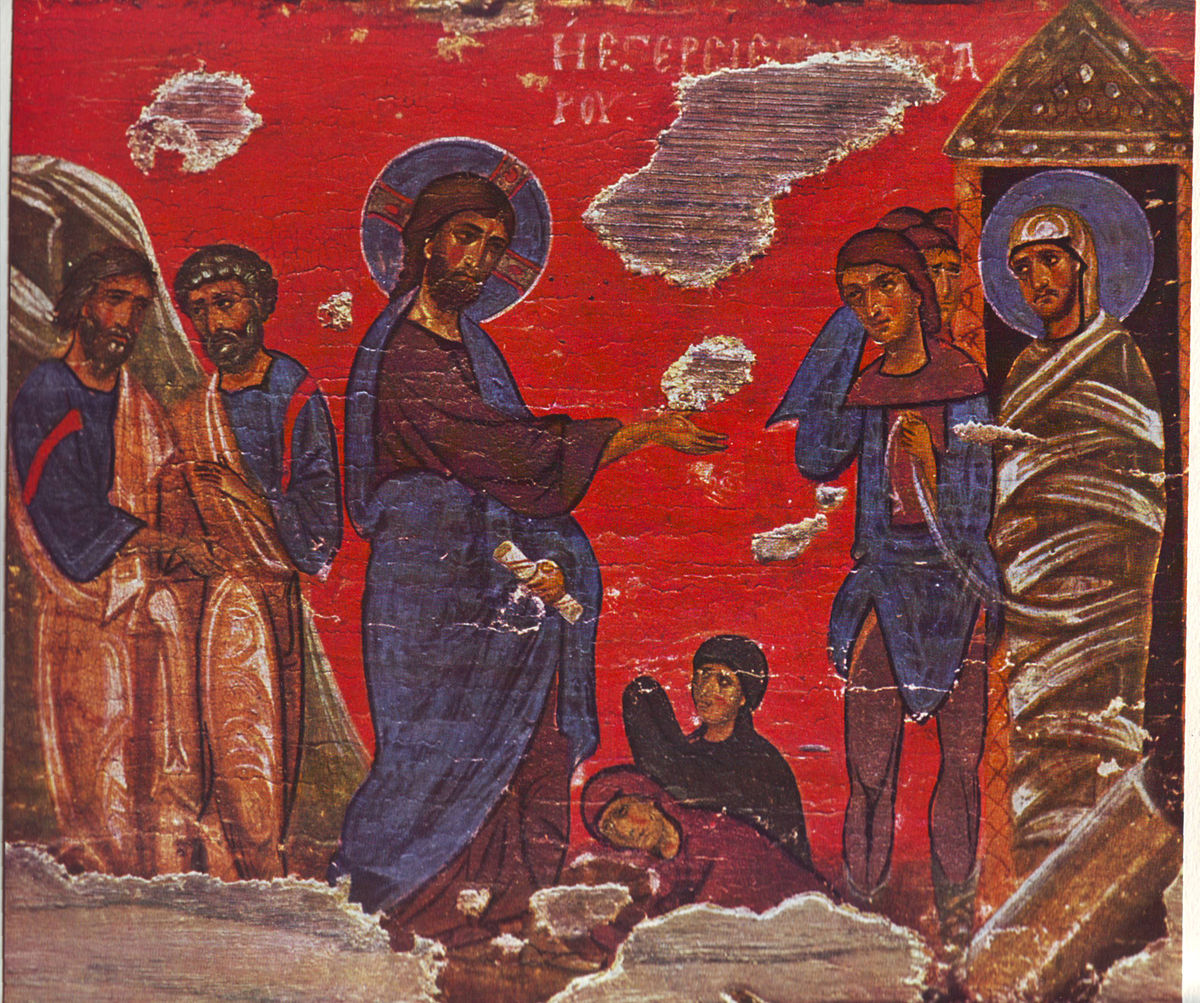Recently, the Confraternity of St. Lazarus was founded to respond to the those who are in need of a proper, dignified Christian burial. It is an initiative between the Eastern and Western Churches. Other Christian communities are welcome to participate in this spiritual and corporal work of mercy.
At the moment, we have the commitment of St. Michael the Archangel Ukrainian Church in New Haven and we are looking to work with other New Haven Churches. Groups like the Knights of Columbus, Communion and Liberation, the Secular Franciscan Order, the Fraternity of St. Dominic are involved.
In many ways the Confraternity of St. Lazarus continues the work of the Archconfraternity of St. Mary of the Oration and Death which was founded in 1538 in Rome, and spent nearly 500 years offering a Christian funeral and burial to those who would otherwise never have one. The Roman group had changed their work in the 1950s when the Italian government began to provide basic human and social services. Today, we are taking up two of the spiritual and corporal works of mercy –praying for and burying the dead.
Honoring Life with Dignity
The Confraternity is honored to be able to be present for burials for our poorest sisters and brothers: stillborn and abandoned babies, late term aborted babies, the homeless U.S. Veterans, the homeless and those who die alone or with no known as the next-of-kin (indigent). We collaborate with local funeral homes who have carried the costs and arranged the details for a dignified, personal burial. The Confraternity arranges with local Catholic clergy, and members of other Churches and ecclesial communities to offer funeral prayer services.
Being Present
We pledge to be physical and spiritually present to those who have died alone and abandoned. We need to stand beside the casket in friendship, solidarity and in prayer. However, presence can also mean for some the construction of coffins and gowns for the stillborn babies. There are a variety of ways to participate.
Prayer sustains
The practice of the works of mercy is sustained by the liturgical life of the Church, the practice of prayer, and the celebration of the greatness of God’s creation. Moreover, it is a good and wholesome thing to pray for the dead (2 Maccabees).
From the beginning
Charitable activity on behalf of the poor and marginalized is based on the principles of Christian life given in the Acts of the Apostles, lived in a vivid expression of people like St. Lawrence, and countless saints. Certainly this is the good example of the recent Church leaders and laity.
An Invitation
All members of the Confraternity of St. Lazarus, whether laity or clergy, devote themselves to the values of Christian charity; striving for spiritual perfection by working for the good of others in giving a proper Christian burial for the vulnerable persons of our society: abandoned stillborn babies, homeless US Veterans and the abandoned. Membership in the Confraternity is open to Christian men and women, who want to engage in this ministry.
As Pope Benedict XVI teaches, “In Jesus’ Resurrection a new possibility of human existence is attained that affects everyone and that opens up a future, a new kind of future, for mankind” (Jesus of Nazareth, vol. 2).
We view, therefore, this work of the Confraternity through the intercession of St. Lazarus as a keen and necessary remembrance of the Lord’s Resurrection and His offering new life to those in the graves, and works of hospitality and friendship.
How We Work
The Confraternity of St. Lazarus works to provide a dignified Christian burial to those who have been forgotten in our society, to understand and speak about the reality and dignity of the human person. We work with others around Connecticut to build a culture of prayer and charity (service) that supports and nurtures the dignity of each human person who has died (the stillborn and abandoned babies, homeless/indigent US Veterans and the homeless/indigent of our cities). We are dedicated to the defense of human dignity through respect of the human body and its final disposition, and works of charity, prayer, education and advocacy.
The Confraternity of St. Lazarus is the fruit of all the work done in the last 25-plus years by religious leaders, philosophers and activists on what it means to have human dignity. Questions like what is a person, who are we as persons in community, and what is our responsibility for the other person, especially a person in need or on the margins of society.
By focusing on the whole person (the physical, spiritual, moral, emotional and intellectual) we resist the reduction of the person understood as an object but think of the person as a subject, a protagonist in history.
No matter the length of time the person has lived or circumstances of that person’s life (socio-economic, medical, and political spheres), all deserve respect and a proper burial. The Confraternity is rooted in the Christian tradition and is informed by the Scripture, Tradition and Mission.
Mission
To promote the dignity of the person by being present, either physically or spiritually, at the burial the stillborn and abandoned babies, homeless/indigent US Veterans and the homeless/indigent of our cities and then to articulate, defend and serve the dignity of the person in their final disposition.
Vision
A world in which the dignity of the person is the foundation for policy and program implementation, in which we understand that progress entails a commitment to the dignity of each human person and the adoption of person-centered solutions.
Want to get involved? Here’s how:
-
- become a companion of the Confraternity of St. Lazarus
- to help build the coffins for the babies
- to help sew the burial gowns for the babies
- to help coordinate the funeral services for the babies and the adults
- participate in the burial services of those received by the Confraternity
- participate in the projects that contribute to the burying a person with dignity
- participate in the formation program
- pray for those enrolled in the St. Lazarus Society (a perpetual liturgical remembrance of the souls buried through the Confraternity).
Our contact information:
Paul Zalonski and Frank Quadrino: stlazarusct@gmail.com

